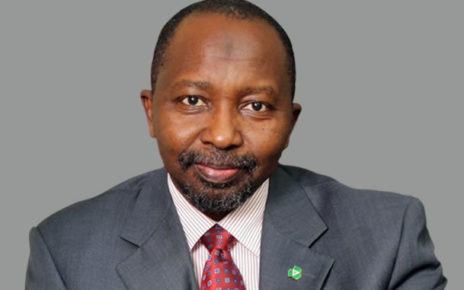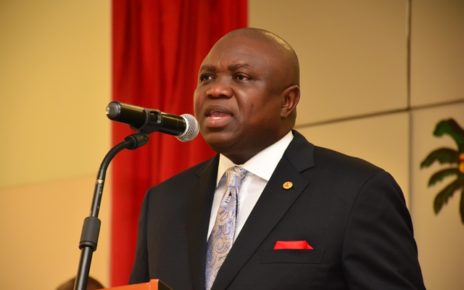….Forecasts 38.8% Poverty Level In 2024
Leading professional services firm, PwC Nigeria, has released its latest Nigeria Economic Outlook, highlighting the seven key trends that will shape the nation’s economic trajectory in 2024.
PwC Nigeria’s report titled ‘Nigeria Economic Outlook 2004’ projected a marginal decline in inflation and 3.1% rise in GDP, and notes that achieving sustainable growth in 2024 requires balancing ambitious fiscal reforms with effective budget implementation.
In addition, the global firm also stresses the importance of aligning fiscal and monetary policy to stabilise prices and reach target goals.
Specifically, the firm harped on the need for the Nigerian government to balance ambition with budgetary implementation in the executive of fiscal reforms; find the right framework and instruments to achieve price stability in its monetary policy reforms; create enabling environment for FDI inflows; remove current constraints to unlocking productivity in the economy; and proactively address external pressures with potential negative ‘shocks’ to the domestic economy.
In addition, PwC also projected that consumers may likely adjust better to the evolving policy and macro realities and that there could be improved sectoral development based on reform initiatives of government this year.
On fiscal reforms implementation, particularly balancing ambition with budgetary implementation, the firm noted: “Nigeria’s ambitious revenue targets for 2024 depend heavily on oil prices and reform implementation. Historically, actual revenue realised has averaged less than 70% of the total budget.
“Achieving budgeted oil revenue in 2024 will depend on OPEC oil production quota, international oil prices, improved security in the oil-producing regions, and geopolitical factors.
“The proposed fiscal reforms have potential to boost non-oil revenue and shape the economy, but success hinges on effective budgeting and execution”, it added.
While noting that the Central Bank of Nigeria (CBN) has deployed several monetary policy tools and instruments to achieve price stability without much achieved so far, the professional services firm maintained that to succeed in the price stability drive, the apex bank “must independently pursue inflation goals, emphasising inflation control, and maintaining a stable financial system.
“Finding coherence and alignment between fiscal and monetary policy to stabilise prices may enable the achievement of statutory and policy targets in 2024. CBN clarity of policy, transparency of market operations and consistent communication will enhance stability to exchange rate price discovery and market activities”, it added.
Similarly, it projected that based on the likely cautious optimism of investors in the economy, foreign portfolio investment flows to the capital market may remain cautious due to residual challenges even as investors’ outlook may be dampened by downgrades from FTSE Russell and MSCI, specifically due to delays in capital repatriation.
It noted that despite this, Moody’s, Fitch, and S&P maintained a speculative credit rating due to drawbacks on reforms and several fiscal challenges that persist and predicted that “FDI flows are expected to improve in 2024 driven by notable expansion in the growing ICT and Manufacturing sectors.”
On the business environment, which currently is not helping to unlock productivity in the economy, PwC experts pointed out that limited fiscal space for public investment and difficulty attracting private investments were constraining the ability to make essential infrastructure improvements even as infrastructure funding may remain insufficient in 2024.
The firm clarified: “The allocated infrastructure spending budget for 2024 is N1.32 trillion, falling short of both the World Bank’s suggested 70% infrastructure-to-GDP benchmark (currently at 30%) and the yearly $150 billion requirement specified in the National Integrated Infrastructure Master Plan for 2021- 2025.
“Security spending in the past nine years amounted to N14.8 trillion. Despite increased spending, insecurity remains a challenge and jeopardises national stability, negatively affects economic activities and undermines investor confidence”, it added.
While reflecting on the persisting vulnerability to external pressures with potential of ‘shocks’ in the economy, PwC projected that geopolitical, economic, environmental, political and trade trends will shape the dynamics and outlook for the Nigerian economy in 2024.
According to the firm, if the Russia-Ukraine war intensifies, it could lead to increased global energy and commodity supply risks and cause Nigeria to experience increased inflation and food security challenges due to grain import disruptions and high petroleum product cost.
Also, it maintained that the outcome of elections in several countries globally, especially USA, UK, and Taiwan may shape the dynamics of trade and capital flows around the world in 2024.
The firm, in the ‘Nigeria Economic Outlook 2024’ report also forecasted that consumer spending may be pressured in 2024 due to rising prices of goods and services (increasing food and transportation costs), coupled with lower disposable income, adding that, however, private consumption is expected to be marginally better than 2023.
It expatiated: “Poverty levels are projected to increase to 38.8% in 2024. Despite the low unemployment rate in the country, low consumer spending and purchasing power remains an issue, especially in the absence of commensurate increase in minimum wage to mitigate the inflationary growth in the economy.”
On improved sectoral development riding on reforms, PwC projected that Nigeria’s GDP may grow marginally by 3.1% in 2024 on the back of sustained policy reforms, driven by ongoing reforms, recovering oil production, and a proactive policy environment.
It, however, listed the possible downside risks to this projection as including sustained rise in fiscal debt, elevated interest rates, high inflationary levels, foreign exchange liquidity pressures, high exposure to shocks in the global value chain, poor non-oil revenues and sector development.
The firm recalled that in terms of sectoral growth, the main drivers of GDP growth in the last 12 months had been the financial services, information and communication, and utilities sectors, adding that it The expects these sectors to continue to drive growth in the short term.
Other factors it listed as having the potential to impact the sectoral growth were demand dynamics, investment, government reforms and trade dynamics.




